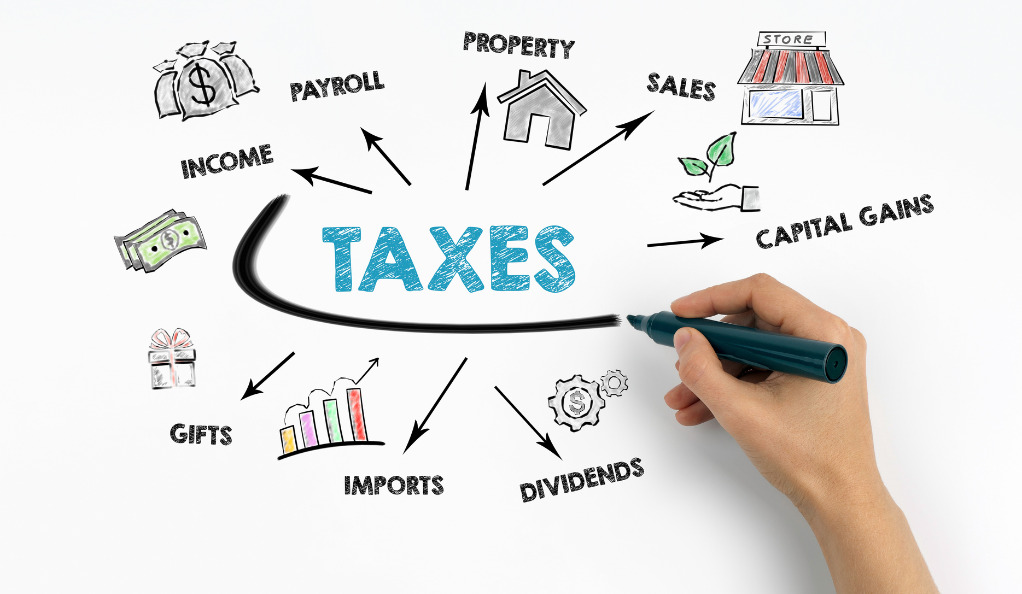Navigating International Taxation: A Comprehensive Guide for Expatriates
Imagine embarking on a new adventure, living and working in a foreign land, immersing yourself in a new culture, and expanding your horizons. The life of an expatriate offers all this and more. However, beyond the excitement lies a complex web of international taxation that demands your attention. This comprehensive guide is your key to unlocking the mysteries of international taxation, ensuring that your global journey is financially rewarding and legally compliant.
Residency Status: The Starting Point

When you step onto foreign soil, you’re not just embarking on a physical journey; you’re entering a new tax jurisdiction. Determining your tax residency status is like finding the first piece of a puzzle. Different countries have different criteria – some consider time spent, others focus on ties and intentions. Your residency status dictates your obligations, so understanding it is paramount.
The Different Types of Taxes Expatriates Encounter
Expatriates, like any other taxpayers, are subject to various taxes. Income tax, wealth tax, and capital gains tax are just a few you might encounter. Each has its own set of rules and implications. Income tax, for instance, nibbles at your earnings; wealth tax looks at your overall assets, and capital gains tax springs into action when you make a profit by selling assets.
Navigating Filing Requirements
Tax season isn’t the most exciting time of year, but it’s a necessity. For expatriates, it’s like dancing to a two-country tune. Your home and host countries might both want a slice of your tax pie. Being aware of the rules, deadlines, and forms is essential. So, before you miss a step, make sure you’re in sync with the filing requirements.
Leveraging Foreign Earned Income Exclusion
Who doesn’t love a little extra in their pocket? Expatriates are eligible for the foreign earned income exclusion, a nifty way to exclude a chunk of your foreign earnings from your home country’s taxes. But like any good deal, there are rules to follow. Ensuring you meet the criteria can mean a substantial reduction in your tax bill.
Mitigating Double Taxation with Foreign Tax Credits
Double trouble is no fun when it comes to taxes. To prevent being taxed twice on the same income, countries have tax treaties in place. Moreover, you can often claim foreign tax credits to offset taxes paid abroad. A bit of strategic maneuvering can help you keep more of your hard-earned money.
Understanding the Significance of Tax Treaties

Tax treaties are like international handshakes. They lay out the rules for how your income will be taxed. They protect you from the agony of double taxation and clarify residency rules. Like any relationship, understanding the dynamics between your home and host countries can save you from unnecessary tax woes.
Untangling Social Security and Medicare
Your financial safety net isn’t limited to one country. Totalization agreements ensure you don’t pay into two different social security systems at once. You contribute to one while securing benefits from both. It’s like having two parachutes when you jump from a plane!
Navigating Investments and Reporting
Expatriates often have a global footprint of financial assets. Reporting foreign accounts ensures transparency and compliance. So, whether you have accounts offshore or investments across borders, knowing what forms to file can save you from stormy tax seas.
Estate and Gift Tax Considerations
Death and taxes, they say, are certain. But when you’re an expatriate, estate and gift taxes can add complexity. Your global assets might be subject to tax even beyond borders. Ensuring your estate planning is airtight can save your loved ones from potential tax burdens.
Crafting Effective Tax Planning Strategies
Navigating taxes isn’t just about abiding by the rules; it’s about making the rules work for you. Timing your income and deductions, choosing tax-efficient investments, and seeking professional advice can turn the tide in your favor.
Common Challenges and How to Overcome Them

The path of an expatriate isn’t always smooth. Overlooking reporting obligations or misunderstanding currency conversions can lead to tax woes. Staying informed and consulting experts can help you steer clear of these hurdles.
Maintaining Compliance: An Ongoing Journey
Staying on the right side of the tax law is a marathon, not a sprint. Keep meticulous records of your financial transactions, stay updated on tax changes, and don’t hesitate to seek professional advice when the road gets rocky.
Navigating Taxation as a Digital Nomad
In a digital age, being a globetrotting worker is more feasible than ever. But the tax implications for digital nomads can be intricate. Determining your tax home, understanding the tax consequences of remote work, and dealing with jurisdictional challenges are all part of the game.
The Role of Tax Professionals
Taxes are a labyrinth, and you don’t have to navigate them alone. Tax professionals who specialize in expatriate taxation can be your guiding light. They know the twists and turns, helping you optimize your tax situation and ensure compliance.
Conclusion: Navigating the Financial Landscape
As an expatriate, your journey is one of discovery and growth. Just as you explore new cultures, you must explore the world of international taxation. Armed with knowledge, you can embark on your adventure with confidence, making the most of every opportunity while staying on the right side of the tax law.
FAQs
Absolutely! Different countries have different rules for tax residency. You could be a resident in both your home and host countries.
Tax treaties are often available on government websites or can be obtained from tax professionals who specialize in international taxation.
Totalization agreements ensure you don’t pay into two social security systems simultaneously, protecting your contributions and benefits.
Yes, forms like FBAR (FinCEN Form 114) and FATCA (Form 8938) are used to report foreign financial accounts and assets.
Absolutely! Tax professionals specializing in international taxation can assist with navigating tax matters in both your home and host countries.
